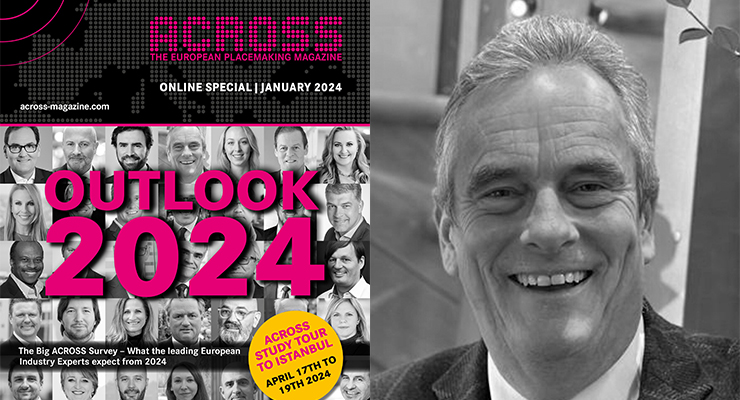A profound shift toward sustainability and Environmental, Social, and Governance (ESG) is reshaping how outlets are designed and built and is going to affect all areas of outlet development.
The contractor selection process is being transformed and is heavily focussed on sourcing local materials, adopting shared transport arrangements, and an overall sustainable approach to construction including construction methods, material usage, rainwater recycling, solar panels, EV charging points, shared transport spaces, and innovative waste management.
Heating, ventilation, and air conditioning systems are key to sustainability and leading solutions like Ground Source Heat Pumps and District Heating will gain traction, necessitating the establishment of a sustainable HVAC infrastructure.
A notable design change is the reconsideration of open-door policies within buildings. Sustainability challenges this tradition, potentially leading to a shift towards closed doors and a focus on electric doors and pivot designs that balance security, fire safety regulations, and enhanced customer convenience.
Back-of-house specifications, traditionally managed by individual brands, will be subject to a more sustainable approach with developers increasingly taking responsibility for back-of-house fit-outs, streamlining processes, capitalising on the economies of scale, and enhancing efficiency and sustainability.
Waste management strategies will continue to be reimagined to reduce reliance on landfill, encourage robust recycling programmes, and champion the circular economy. Water conservation will be prioritised, with measures such as water-efficient landscaping, recycled water usage, and advanced irrigation technologies becoming commonplace.
Actively engaging with all stakeholders – including collaborating with tenants, local authorities, and neighbouring businesses – should be key to an outlet’s overall sustainability programme. As part of this the outlet should work towards shared sustainability goals through partnerships and charitable initiatives with these stakeholders.
The well-being of employees and visitors should be a key pillar of sustainability. Rigorous training programmes, advanced safety technologies, and a culture of responsibility all contribute to a more sustainable and socially responsible development, whilst employee engagement will empower staff to contribute ideas and participate in green initiatives. Transparency will also come to the fore, with outlets increasingly encouraged to publicly disclose their ESG goals and progress.
Today, building sustainable outlets isn’t just an ethical choice; it’s a strategic imperative. By future proofing them, through sustainable practices, we not only contribute to environmental stewardship but also ensure resilience in the face of evolving market demands and an ever changing regulatory landscape. Sustainability isn’t just a trend, it’s an investment in the longevity and relevance of outlets in the dynamic retail landscape of tomorrow.

Giles Membrey
Giles Membrey is Managing Director of Rioja Estates Ltd., and Member of the ACROSS Advisory Board.







